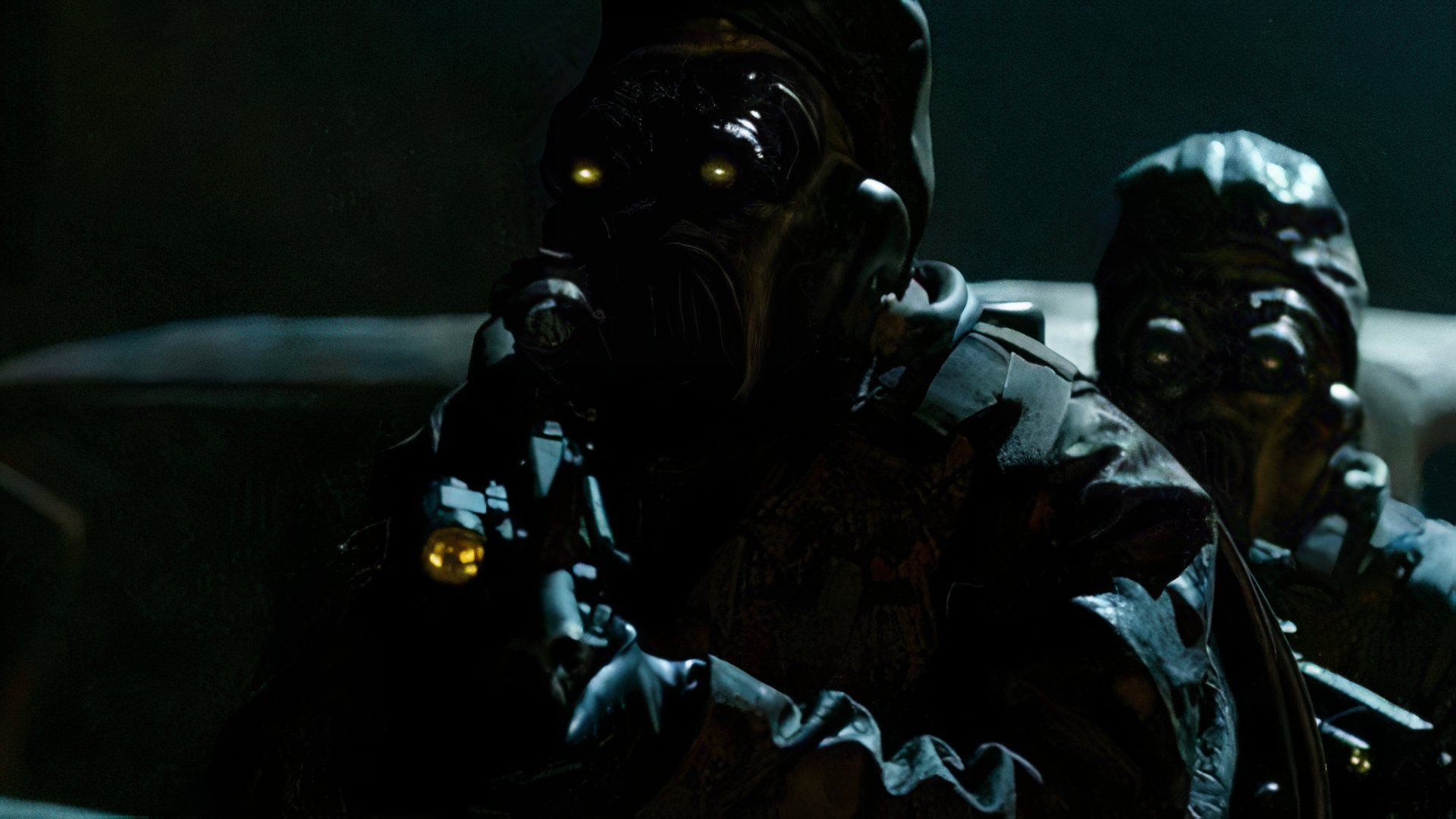The crime drama Craith (also known as Hidden in English) brings viewers into a world gripped by deep emotional and social struggles. Set against the backdrop of violence and family turmoil, the show follows two troubled teenagers, Mia and Lee, who become entangled in a murder.
Along with their friend Connor, they attempt to hide their crime—the murder of a man suspected of being a sexual predator—while grappling with their demons. The series explores intense themes like wasted childhood potential, domestic abuse, social conditioning, and suicide.

The series begins with a strikingly atmospheric opening. A hooded figure, whose identity is hidden, uses a phone booth late at night during a heavy downpour to direct the police to a house. The figure is tight-lipped, refusing to give any personal details or mention the murder.
The police respond to the call, searching the estate and shouting the name of the man who lives there, Mr. Elis, but receive no response. As they continue their search, they discover the body of a man in a bathtub, hidden behind a shower curtain.
His lifeless body appears to have been there for some time. The scene transitions smoothly to the opening credits, heightening the mystery. This opening moment effectively sets the tone for the series, building suspense without revealing much.
The dark and tense atmosphere had me wondering if the police would face an ambush, and the urgency in the voice of the anonymous caller suggested that a confrontation might unfold during their visit. This well-crafted start leaves viewers to ponder the many possibilities before gradually uncovering the surface of the story.
The Show’s Emotional Depth and Complex Characters
Where Craith excels is in its ability to maintain suspense, even when the outcome is clear. The series manipulates music to build tension or offer relief, changing camera angles to heighten moments of intensity. Characters engage in dialogue that, at times, is unnerving and gripping.
Returning to the opening scene, the police explore the house with flashlights, and only at the last moment do they find the staircase. The dim lighting and the eventual reveal of blood on the handrail signal the imminent danger upstairs, creating a sense of dread and anticipation.
The show also delves into the troubled family dynamics of its characters. Craith presents a harsh look at how familial relationships can influence crime, particularly murder. DCI Cadi John is still mourning her father’s recent death, and as the series progresses, she learns about his involvement in the wrongful imprisonment of someone.
Her partner, Vaughan, has to temporarily suspend the investigation to care for his newborn child. Meanwhile, Mia is caught in an abusive household where her stepfather tries to kiss her while intoxicated, leading her to fight back.
Lee, a young carer, must live with a violent older brother and a father who depends on him to breathe. Despite copying his brother’s aggression, Lee rarely acts out of malice. Connor, on the other hand, manages to escape his abusive father, but the trauma still affects him, making him vulnerable to Mia’s manipulative ways.
I found Connor’s character particularly compelling. As a teenager new to town, he seeks to fit in and quickly befriends Mia, who drags him into the murder. As the series progresses, Connor spirals emotionally, with his relationships becoming increasingly strained.
The impact of the crime on him is visible through his body language, including his slouched posture, avoiding social interactions by pulling up his hood, and his inability to eat or sleep. In one intense scene, when his mother asks what’s wrong, he violently shoves her against the wall and grips her by the throat.
Mia’s Manipulation and the Show’s Introspection on Crime
His fear of the consequences is clear, especially when he notices his younger brother witnessing the incident, making him realise that he has become just like his father. The frequent reference to Christina Rosetti’s poem, Remember, serves multiple purposes in the series.

It helps to flesh out Mia’s character as the antagonist. Mia, a talented English student, uniquely interprets the poem, questioning whether it speaks about wanting to be forgotten instead of remembered. Her teacher encourages her to use her talent for good.
However, the poem’s deeper implications point to Mia’s manipulative nature. Later in the series, DCI John discovers the poem on Mia’s desk, which reveals Mia’s role in the cyberbullying of her late friend, Gwilym Scott, leading him to take his own life.
Though Mia never intended to cause harm, her written words proved to be deadly. This manipulation continues to affect others, particularly Connor, who is drawn into a state of emotional despair.
Mia’s closing line in the series, “It doesn’t matter where I go; I always make new friends,” hints at her unchanging behaviour and the cycle of manipulation that will keep repeating itself.
The central figure, DCI Cadi John, is set apart by her ability to use words strategically during interviews to provoke emotional reactions from her suspects. Despite this, she genuinely cares for the people she serves, a contrast to the often cold and distant archetypal detectives.
Having recently lost her father, she can connect with those affected by Mr. Elis’s death, particularly when she interviews his daughter in the comfort of their own home.
Sian Reese-Williams delivers an empathetic portrayal of Cadi, making every gesture, facial expression, and tone of voice resonate with the viewer, evoking a deep sense of empathy for those who have suffered loss.
What makes Craith stand out is its commitment to portraying three-dimensional characters dealing with real, topical issues in a believable and relatable way. The world of Craith feels real and immersive, creating a gripping atmosphere full of tension and sadness.
It’s a psychological thriller that pulls viewers in, leaving them hanging on every word and action.



